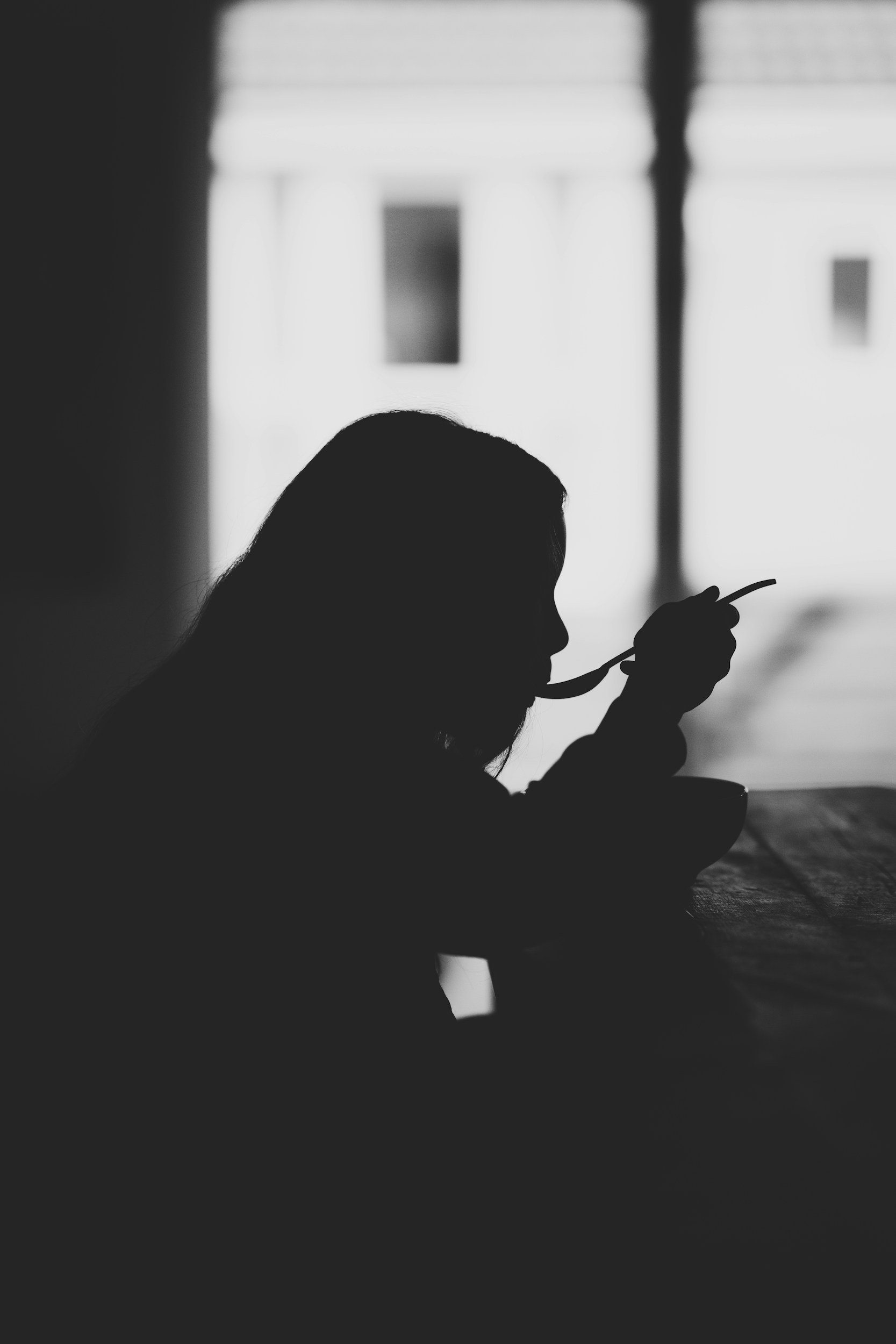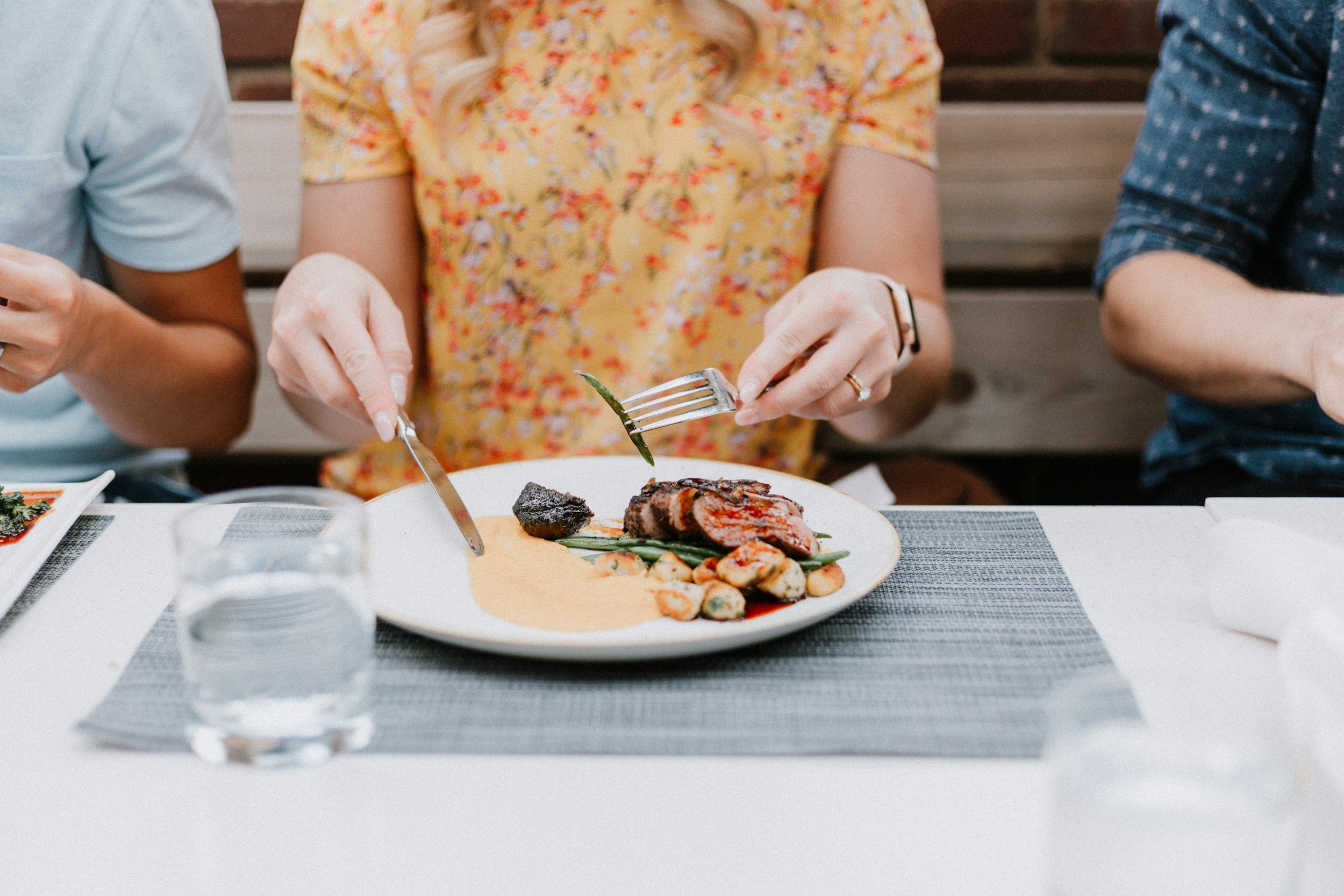Eating Disorders Aren’t Just a Problem for Young
Note: This post discusses eating disorders and may be triggering for some readers.
When we think about eating disorders, the image that comes to mind is often a teenage girl. Young. Thin. Restrictive. Visibly unwell.
But that stereotype is not just outdated: it’s dangerous.
In recent years, more women in midlife have started seeking help for disordered eating. Some are experiencing symptoms for the first time. Others are finding that old patterns they thought were “under control” are roaring back louder than ever. What’s changed? For many, the answer is clear: perimenopause.
Hormones, Body Changes, and Control
Perimenopause can feel like your body is changing without your permission.
Estrogen levels fluctuate, your metabolism shifts, and body fat redistributes, often to the abdomen, no matter how many salads or Pilates classes you throw at it. The sense of control you may have felt over your body in your 30s starts to fray. And when you’ve grown up in a culture that told you smaller = better, it’s easy to feel like you’re failing.
Add in sleep disruptions, mood swings, increased cortisol, and intense life transitions: caring for aging parents, launching kids, ending relationships, re-evaluating your career, and it becomes clear why food and body might become a new (or renewed) battleground.
Disordered Eating in Disguise
At this stage, eating disorders don’t always look like skipping meals or dramatic weight loss. They often show up as:
A new “clean eating” obsession
Extreme discipline around food or exercise
Intermittent fasting with rigid rules
Guilt after eating anything “off plan”
Binge-restrict cycles you don’t talk about
A return to food as comfort or punishment
It might not “look like” an eating disorder from the outside. But on the inside, the same thoughts are there: shame, fear, control, punishment, and preoccupation.
You’re not just trying to eat healthy.
You’re trying to feel safe in a body that no longer feels like yours.
Why It Gets Missed (or Dismissed)
Eating disorders in midlife are deeply underdiagnosed and under-supported.
Part of the problem is the narrative. Most eating disorder screening tools were designed for adolescents. Most clinicians don’t think to ask 50-year-old women if they’re skipping meals, hiding bingeing, or fearing fullness.
And culturally? We’re told we should have outgrown this by now. That we should have made peace with our bodies. That “body positivity” is the goal, but thinness is still the expectation.
So many women end up silently suffering. They think:
“I should be over this by now.”
“It must be perimenopause.”
“I just need to be more disciplined.”
“Everyone’s body changes. I’m just not handling it well.”
And then there’s something else no one talks about:
The fear of becoming invisible.
In a culture that idolizes youth and thinness, midlife can feel like a slow fade into the background. The way people stop noticing you. The way compliments become fewer, conversations shift, or clothing feels less “for you.”
For some, disordered eating becomes a way to fight invisibility—to reclaim control, validation, or a sense of being seen. But it’s a painful, isolating path.
You don’t have to shrink to be worthy of space.
Your body deserves care, not criticism.
And you deserve to be seen—fully, and without condition.
The Real Risks of Midlife EDs
Eating disorders at any age come with serious medical risks. But in midlife, the stakes are even higher:
Osteoporosis and irreversible bone loss
Heart complications from long-term restriction or purging
GI issues like gastroparesis or chronic constipation
Mental health impacts, including anxiety, depression, and isolation
Dental erosion from purging behaviors
Increased inflammation from cyclical restriction or bingeing
And perhaps most invisibly: the mental load. The constant food noise. The loss of trust in your body. The exhaustion of chasing control and calling it health.
You Are Not Too Old for Support
Midlife is not the end of your story. It’s a new chapter—and it can be a healing one.
If you’re struggling, know this:
You don’t have to be in a crisis to deserve support.
You don’t need a formal diagnosis to get help.
You don’t need to justify your body size, age, or health status.
You are not a failure for still struggling.
And most importantly—you are not alone.
It’s never too late to make peace with food. To build a relationship with your body that isn’t based on control. To feel nourished, safe, and whole again.
Feel like this post was written for you?
If you found yourself nodding along, or realizing just how much this hit home, it might be time to talk to someone who truly gets it. You don’t need to have it all figured out. You just need a safe space to start.
Schedule a free discovery call to explore what support could look like. No pressure. No judgment. Just a chance to feel heard.


